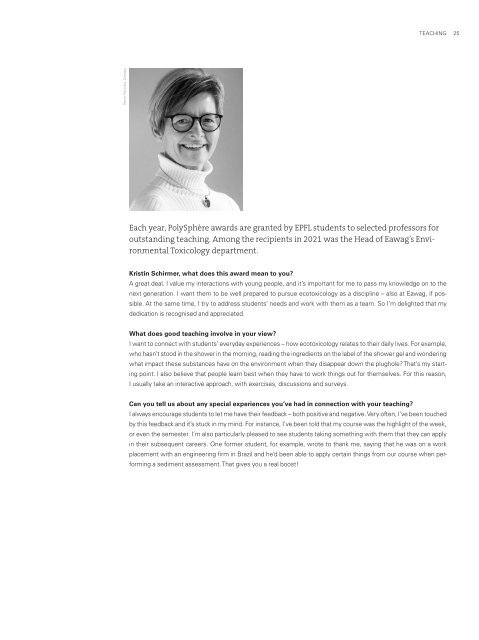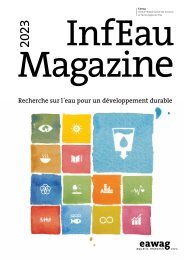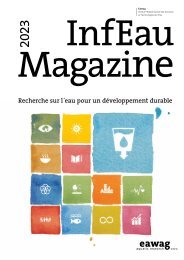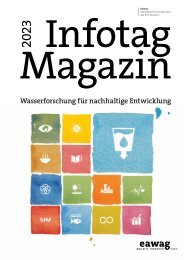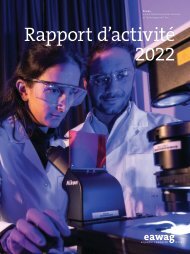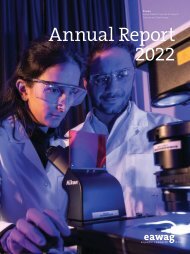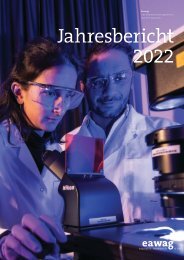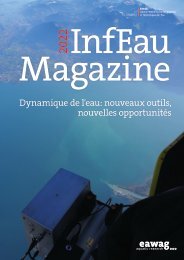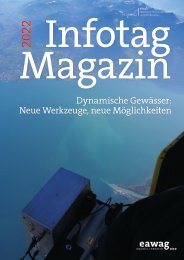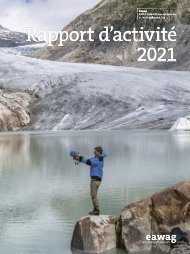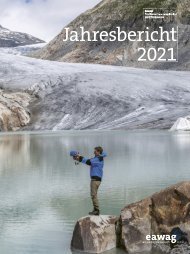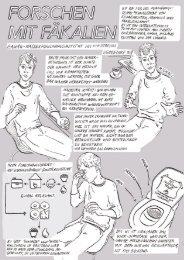Eawag Annual Report 2021
The Annual Report gives a wide-ranging account of current Eawag projects. It is published in English and German, and since 2013 also in French.
The Annual Report gives a wide-ranging account of current Eawag projects. It is published in English and German, and since 2013 also in French.
You also want an ePaper? Increase the reach of your titles
YUMPU automatically turns print PDFs into web optimized ePapers that Google loves.
TEACHING<br />
25<br />
Peter Penicka, <strong>Eawag</strong><br />
Each year, PolySphère awards are granted by EPFL students to selected professors for<br />
outstanding teaching. Among the recipients in <strong>2021</strong> was the Head of <strong>Eawag</strong>’s Environmental<br />
Toxicology department.<br />
Kristin Schirmer, what does this award mean to you?<br />
A great deal. I value my interactions with young people, and it’s important for me to pass my knowledge on to the<br />
next generation. I want them to be well prepared to pursue ecotoxicology as a discipline – also at <strong>Eawag</strong>, if possible.<br />
At the same time, I try to address students’ needs and work with them as a team. So I’m delighted that my<br />
dedication is recognised and appreciated.<br />
What does good teaching involve in your view?<br />
I want to connect with students’ everyday experiences – how ecotoxicology relates to their daily lives. For example,<br />
who hasn’t stood in the shower in the morning, reading the ingredients on the label of the shower gel and wondering<br />
what impact these substances have on the environment when they disappear down the plughole? That’s my starting<br />
point. I also believe that people learn best when they have to work things out for themselves. For this reason,<br />
I usually take an interactive approach, with exercises, discussions and surveys.<br />
Can you tell us about any special experiences you’ve had in connection with your teaching?<br />
I always encourage students to let me have their feedback – both positive and negative. Very often, I’ve been touched<br />
by this feedback and it’s stuck in my mind. For instance, I’ve been told that my course was the highlight of the week,<br />
or even the semester. I’m also particularly pleased to see students taking something with them that they can apply<br />
in their subsequent careers. One former student, for example, wrote to thank me, saying that he was on a work<br />
placement with an engineering firm in Brazil and he’d been able to apply certain things from our course when performing<br />
a sediment assessment. That gives you a real boost!


